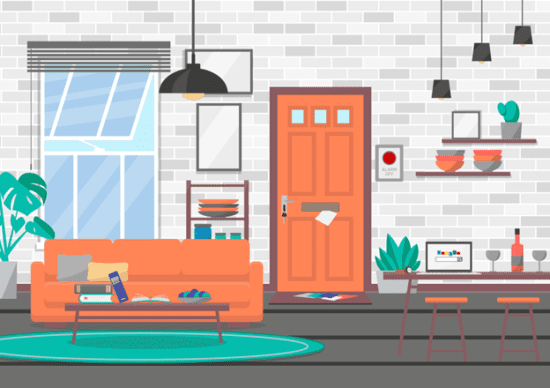Almost half of UK residents admit to making security mistakes when they leave their home
When you’re heading out of the door in a rush – perhaps late for a meeting or trying to beat the school run traffic – the security of our homes isn’t always at the forefront of our minds.
Almost half of UK residents admit to making security mistakes when they leave their homes, according to new data from smart alarm systems specialist, SimpliSafe. When surveyed, 45% of people said they only check their front door – and maybe set a burglary alarm – when they leave their homes.
Millennials less concerned with security
When you break down the results from an age point of view, that’s when you really start to see a difference.
A third of those aged 45 to 64 years olds (32%) said that they checked every window and door, and moved their valuables from view, every time they left the home.
This is compared to less than a quarter of 25-34-year-olds (23%) who said the same.
Security mistakes are not always obvious
As we’ve seen from the survey results, a great deal of the British public believe that their front door is the only weak spot in their home. But doing a double check of the handle isn’t enough anymore. Not only will potential thieves look for these weak points, but they will scour your home from the outside to check if it’s worth more effort or if they should come back at a later date.
Can you spot the six home security mistakes in the picture below, bearing in mind that no one is home?

Did you get them all? Some of them are less obvious than you think! The next image shows where the mistakes are.
Let’s do a quick run-through of the mistakes and why it’s important that you don’t make these in the future:
- Blinds and curtains open – This is especially important if you live on a main or busy road; who knows who will be peeping in through your windows? While you may not want to be shrouded in darkness 24/7, consider installing blinds that can be angled to make it difficult to see in while still letting the light through.
- Window open – This may seem obvious, but how many times have you headed out of the house only to spot a window ajar? And don’t think that just because the second story windows are closed that you’re safe. Burglars will look for any opportunity!
- Keys in the lock – Did you know that the front door is the most commonly used point of entry for burglars? That’s according to the latest ONS data!* While this may seem like a handy place to keep your keys, leaving them in the inside lock is a big no-no. Burglars can reach through letterboxes or break windows and hook them back through to the outside and all of a sudden, they can let themselves in!
- Post piling up – If you’re not the neatest individual, or if you’re away from home a lot, it’s not a good idea to leave post piling up on the inside of your door. This shows potential burglars that you’re away a lot, and gives them ample opportunity to strike.
- Alarm not on – Although you may think that the mere presence of a burglar alarm is enough to deter someone, think again. Burglars nowadays are wise to the differences and can often spot fakes. Also, if you have a working alarm and haven’t set it, it’s almost inviting unwanted people through the door.
- Valuables on show – By having valuables placed in clear view – such as laptops and iPads and things that are easy to grab and run – you’re showcasing your home as an easy target. Someone could be in and out with easy money in no time. It doesn’t take long to tuck things out of sight.
Jonathan Wall, UK General Manager of SimpliSafe, says: “While we were surprised by the large number of people who only check their front door, with our busy lifestyles it makes perfect sense. Not many of us have the time to check absolutely every inch of our homes every time we leave the house. That’s why it’s important for people to have a few main points that they can check quickly and easily.
“A good way to think of it is – valuables, entry points, and protection. Make sure your valuables are out of sight, ground floor windows and doors are locked, and finally, always set your home’s alarm.”
For more information about SimpliSafe visit www.simplisafe.co.uk.